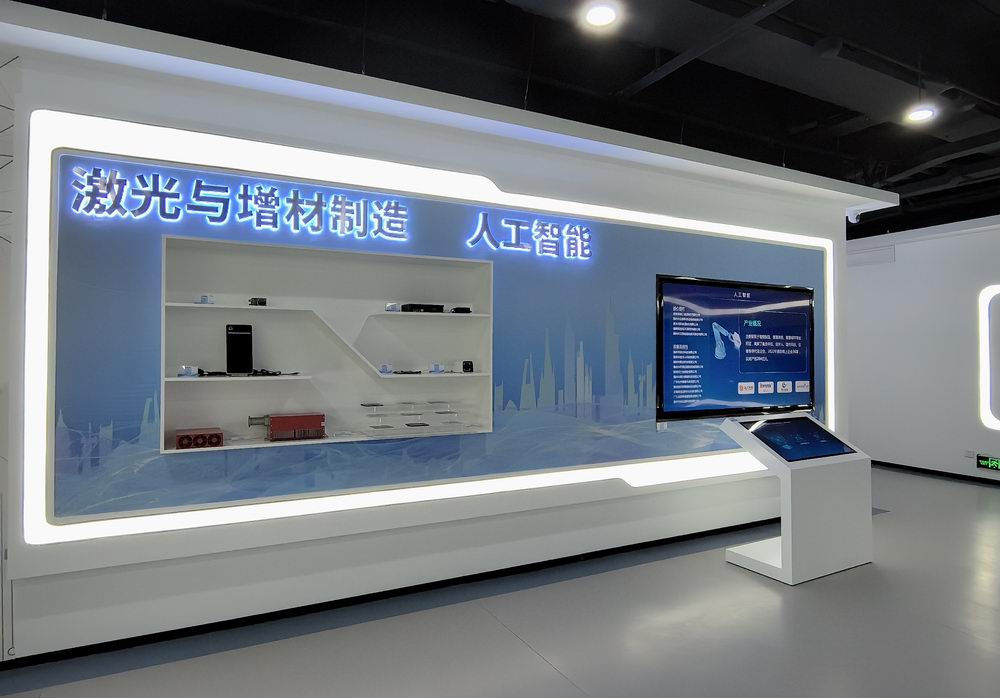The Role of Biomedical Innovation Centers in Modern Medicine

Biomedical innovation centers play a crucial role in shaping modern medicine. They drive advancements in healthcare technologies and solutions. These centers serve as hubs for research and development, fostering innovation that transforms patient care. By collaborating with various stakeholders, they ensure the rapid implementation of groundbreaking medical technologies. The Huizhou Zhongkai High-tech Zone exemplifies this by supporting enterprises in their pursuit of innovation. This zone provides a platform for companies to thrive, contributing significantly to the evolution of healthcare. Biomedical innovation centers, therefore, stand at the forefront of medical progress, enhancing the quality of life for many.
Understanding Biomedical Innovation Centers
Definition and Objectives
Biomedical innovation centers serve as pivotal hubs in the healthcare landscape. They focus on advancing medical science and technology. These centers aim to foster innovation by providing a collaborative environment for researchers, healthcare providers, and industry partners. Their primary objective is to develop and implement new medical technologies that improve patient care and public health. For instance, the Georgetown Innovation Center for Biomedical Informatics (ICBI) applies data science to advance Precision Medicine, showcasing the center's commitment to cutting-edge research.
Key Functions and Areas of Focus
Biomedical innovation centers perform several key functions. They conduct research to explore new healthcare solutions and address existing challenges. These centers also encourage interdisciplinary collaboration, bringing together experts from various fields to work on innovative projects. The Huizhou Zhongkai High-tech Zone exemplifies this by supporting enterprises in their pursuit of innovation. This zone provides a platform for companies to thrive, contributing significantly to the evolution of healthcare.
Moreover, these centers partner with healthcare providers, insurers, and government agencies to test and refine novel interventions. The Jefferson Lab's Biomedical Research & Innovation Center (BRIC) illustrates this by transitioning state-of-the-art research from nuclear physics to healthcare applications. By addressing profound challenges in the global biomedical industry, these centers develop, test, and disseminate new knowledge and tools designed for real-world application.
Impact on Patient Care and Healthcare Delivery
Innovations in Medical Technology
Biomedical innovation centers have revolutionized patient care through groundbreaking medical technologies. These centers serve as catalysts for scientific progress, driving advancements that enhance healthcare delivery. For instance, the discovery of penicillin by Alexander Fleming marked the birth of modern antibiotics. This innovation spared millions from amputations and death due to infections. Such breakthroughs underscore the transformative power of biomedical innovation centers.
Technological advancements in biomedical research have further propelled healthcare forward. Innovations like monoclonal antibodies and recombinant DNA technology have paved the way for targeted therapies. DNA sequencing and Crispr-Cas9 have opened new avenues for genetic research and treatment. Biomedical innovation centers play a crucial role in developing these technologies, ensuring their integration into clinical practice.
Case Studies of Successful Innovations
Several case studies highlight the success of biomedical innovation centers in advancing healthcare. The Huizhou Zhongkai High-tech Zone exemplifies this success by supporting enterprises in their pursuit of innovation. This zone provides a platform for companies to thrive, contributing significantly to the evolution of healthcare.
One notable example is the development of induced pluripotent stem cells. This breakthrough has enabled researchers to create patient-specific cell lines for personalized medicine. Biomedical innovation centers have facilitated this research, leading to new treatments for various diseases.
Another success story involves two-photon imaging, a technique that allows scientists to observe living tissues at the cellular level. This innovation has improved our understanding of complex biological processes, aiding in the development of new therapies. Biomedical innovation centers have been instrumental in refining and implementing this technology.
The Importance of Collaboration
Partnerships with Healthcare Providers
For example, the Huizhou Zhongkai High-tech Zone supports enterprises by fostering partnerships with local hospitals. This collaboration ensures that innovations meet real-world healthcare demands.
Collaborations with Technology Companies
Technology companies play a crucial role in the success of biomedical innovation centers. These collaborations bring cutting-edge technology and expertise to the table. By working together, biomedical innovation centers and tech companies can accelerate the development of innovative healthcare solutions. The Huizhou Zhongkai High-tech Zone exemplifies this by providing a platform for tech companies to collaborate with biomedical researchers. This synergy leads to the creation of advanced medical devices and software that improve patient care.
Xiaoliang Sunney Xie, Founding Director of BIOPIC, emphasizes the importance of cross-disciplinary collaboration: “We do not conduct investigations in a vacuum, but explore scientific questions in synergy.” This approach has driven significant advancements in biomedical research.
Role of Government Support
Government support is vital for the success of biomedical innovation centers. Governments provide funding, resources, and regulatory guidance to facilitate innovation.
Challenges Faced by Biomedical Innovation Centers
Funding and Resource Limitations
Biomedical innovation centers often encounter significant challenges related to funding and resources. These centers require substantial financial support to conduct research, develop new technologies, and bring innovations to market. However, securing adequate funding can be difficult. Many centers rely on government grants, private investments, and partnerships to sustain their operations. The Huizhou Zhongkai High-tech Zone plays a crucial role in addressing these challenges. It provides a supportive environment for enterprises, offering access to resources and funding opportunities. This assistance helps companies overcome financial barriers and continue their innovative work.
Limited resources also pose a challenge for biomedical innovation centers. They need access to state-of-the-art equipment, skilled personnel, and cutting-edge technology to drive research and development. The Huizhou Zhongkai High-tech Zone supports enterprises by facilitating access to these essential resources. By creating a collaborative ecosystem, the zone enables companies to share knowledge, expertise, and technology. This support enhances the capabilities of biomedical innovation centers, allowing them to focus on their core mission of advancing healthcare.
Regulatory and Compliance Issues
Navigating regulatory and compliance issues presents another challenge for biomedical innovation centers. These centers must adhere to strict regulations and standards to ensure the safety and efficacy of their innovations. Compliance with these requirements can be time-consuming and costly. The Huizhou Zhongkai High-tech Zone assists enterprises in overcoming these hurdles. It provides guidance on regulatory processes and helps companies understand and meet compliance standards. This support streamlines the development and implementation of new technologies, reducing delays and costs.
Regulatory challenges also include the need to adapt to changing policies and standards. Biomedical innovation centers must stay informed about new regulations and adjust their practices accordingly. The Huizhou Zhongkai High-tech Zone offers resources and expertise to help enterprises navigate these changes. By fostering a culture of compliance and innovation, the zone ensures that biomedical innovation centers can continue to develop groundbreaking healthcare solutions while adhering to regulatory requirements.
Strategies for Overcoming Challenges
Leveraging Public-Private Partnerships
Biomedical innovation centers can overcome challenges by leveraging public-private partnerships. These collaborations bring together resources, expertise, and funding from both sectors. The Huizhou Zhongkai High-tech Zone exemplifies this approach. It provides a platform for enterprises to connect with government agencies and private investors. This support helps companies access the necessary resources to advance their research and development efforts.
Public-private partnerships offer several benefits:
Resource Sharing: Companies can share equipment, facilities, and technology, reducing costs and increasing efficiency.
Expertise Access: Enterprises gain access to a diverse pool of experts, enhancing their ability to innovate and solve complex problems.
Funding Opportunities: Partnerships open doors to new funding sources, ensuring that biomedical innovation centers have the financial support they need.
The Huizhou Zhongkai High-tech Zone fosters these partnerships by creating a collaborative ecosystem. This environment encourages knowledge exchange and cooperation, driving innovation in healthcare.
Enhancing Research and Development Capabilities
Enhancing research and development (R&D) capabilities is crucial for biomedical innovation centers. The Huizhou Zhongkai High-tech Zone supports enterprises in this endeavor by providing access to cutting-edge technology and skilled personnel. This assistance enables companies to focus on their core mission of advancing healthcare.
Several strategies can enhance R&D capabilities:
Investing in Technology: Companies should invest in state-of-the-art equipment and software to stay at the forefront of innovation.
Training and Development: Providing ongoing training for staff ensures that they have the skills needed to conduct advanced research.
Collaboration with Academia: Partnering with universities and research institutions can provide access to new ideas and methodologies.
The Huizhou Zhongkai High-tech Zone plays a vital role in facilitating these strategies. By offering resources and support, the zone empowers enterprises to push the boundaries of biomedical research. This commitment to innovation ensures that biomedical innovation centers can continue to develop groundbreaking healthcare solutions.
Future Potential of Biomedical Innovation Centers
Emerging Trends in Biomedical Research
Biomedical innovation centers are at the forefront of emerging trends in research. They harness cutting-edge technologies to push the boundaries of medical science. Artificial intelligence (AI) and machine learning (ML) have become pivotal in this landscape. Researchers use ML to develop algorithms that assess patient risk, enhancing predictive accuracy in healthcare. AI-driven tools streamline data analysis, enabling faster and more precise diagnostics.
Digital health represents another significant trend. It encompasses telemedicine, wearable devices, and mobile health applications. These innovations improve patient monitoring and engagement, offering personalized healthcare solutions. Biomedical innovation centers play a crucial role in integrating these technologies into clinical practice. They collaborate with tech companies to create user-friendly platforms that empower patients and healthcare providers alike.
The Huizhou Zhongkai High-tech Zone exemplifies support for enterprises embracing these trends. It provides a collaborative environment where companies can access resources and expertise. This support accelerates the development and implementation of innovative healthcare solutions. By fostering a culture of innovation, the zone ensures that biomedical innovation centers remain at the cutting edge of research.
Long-term Impact on Global Healthcare
The long-term impact of biomedical innovation centers on global healthcare is profound. These centers drive advancements that transform patient care and public health. They develop new treatments and technologies that address pressing healthcare challenges. For instance, breakthroughs in genetic research have led to targeted therapies for cancer and rare diseases. Biomedical innovation centers facilitate these discoveries, ensuring their translation into effective treatments.
Global collaboration amplifies the impact of these centers. They partner with international organizations to share knowledge and resources. This cooperation accelerates the dissemination of innovations across borders, improving healthcare outcomes worldwide. The Huizhou Zhongkai High-tech Zone supports such collaborations by providing a platform for enterprises to connect with global partners. This network fosters the exchange of ideas and expertise, driving progress in biomedical research.
In the future, biomedical innovation centers will continue to shape the healthcare landscape. They will lead the charge in addressing emerging health threats and improving quality of life. By supporting enterprises in their pursuit of innovation, the Huizhou Zhongkai High-tech Zone ensures that these centers remain vital contributors to global healthcare advancement.
Biomedical innovation centers play an essential role in modern medicine. They drive advancements in healthcare technologies and solutions. These centers act as innovation labs, addressing some of the industry's biggest challenges. By fostering interdisciplinary collaboration and partnering with various entities, they create a pipeline for impactful healthcare research. The Huizhou Zhongkai High-tech Zone exemplifies this by supporting enterprises in their pursuit of innovation. This zone provides a platform for companies to thrive, contributing significantly to the evolution of healthcare. Ongoing collaboration and support remain crucial to driving future innovations in this field.
See Also
Zhongkai High-tech Zone: Fueling Growth Through Innovation
Unveiling Innovative Solutions in Zhongkai High-tech Zone
Zhongkai High-tech Zone: A Center for Creative Innovation
Huizhou Zhongkai High-tech Zone: Leading Collaboration in Tech Innovation
Zhongkai High-tech Zone: Pioneering Innovations in Smart Terminals
Zhongkai High tech Zone National foreign trade transformation and Upgradi Base(Electronic Information)Cloud Platform.
Address: Zhongkai High-tech Zone,Huizhou City ,Guangdong,China
E-mail: huizhoueii@163.com 13510001271@163.com
Tel: +86-0752-3279220 Mobile: +86-13510001271


